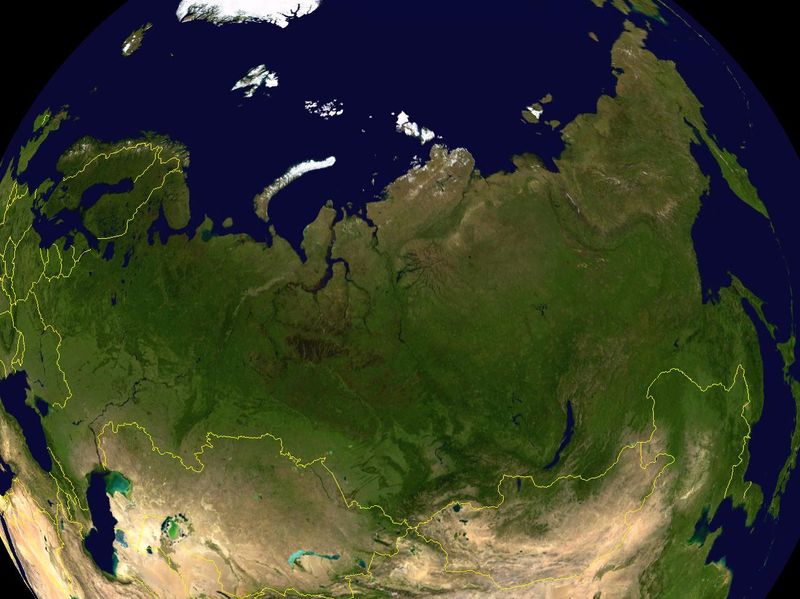(THIS ARTICLE IS MACHINE TRANSLATED by Google from Norwegian)
Despite stern criticism of Moscow's actions from several of the EU's 27 nations, only Lithuania formally dissented from the decision Monday, which foreign ministers and analysts said was a clear acknowledgment of how much Europe and Russia need each other and of how the financial crisis has refocused world affairs since the summer.
An improvement in relations with Russia – a member of the G-8 – may help broader European objectives of securing agreement on measures to reshape global financial structures. President Nicolas Sarkozy of France, the current president of the EU, meets his Russian counterpart, Dmitri Medvedev, in Nice on Friday before both men head to a G-20 summit meeting in Washington.
It was only on Sept. 1 that European leaders decided to freeze negotiations with Russia on a new agreement to reorder their relations across all spheres of the economy and politics, and especially to formulate a shared stance on energy.
Russia supplies a considerable chunk of Europe's energy needs, and many Europeans fear that makes them vulnerable to Kremlin pressure. Russia, meanwhile, needs the earnings from energy exports.
At the time, the Sept. 1 decision was presented as a rare and bracing show of European unity vis- -vis Russia. The conclusions of that meeting noted that "until troops have withdrawn to the positions held prior to August 7" – when the Georgian war erupted in still unclear circumstances – negotiation of the partnership agreement would be "postponed."
But on Monday, as the decision was being made in Brussels, word came that South Ossetians, allies of Russia, were occupying a village that puts the agreement under Georgian control. In addition, two Georgian policemen were killed outside another village when a remote-controlled mine exploded near their car. When a patrol arrived to investigate, a second mine exploded, wounding three more policemen.
The foreign minister of France, Bernard Kouchner, conceded that there was some doubt about whether Moscow had met in full all conditions of the agreement to end the Georgia conflict that was laboriously negotiated by France. But, he added, the fact that 26 out of 27 nations agreed to resume talks was "not bad" as a barometer of EU unity.
Lithuania and Poland have taken a tough line on relations with Russia, and domestic opinion there hardened last week when Moscow threatened to place missiles in the Russian enclave of Kaliningrad, which borders both those countries.
Lithuania spoke first at the discussion Monday on Russia, saying Moscow had failed to meet the terms laid down at the Sept. 1 summit meeting and the talks should not resume on principle.
Zygimantas Pavilionis, a Lithuanian Foreign Ministry official who attended the meeting Monday, said: “In our opinion, the renewal of talks at this time is a mistake because by stepping down from our commitments we are sending a signal that withdrawal to the lines of Aug . 7 is not so important and our relationship with Russia is more important. That's a bad message for us to send. ”
Kouchner said that some zones, adjacent to South Ossetia, that were occupied "legitimately or illegitimately by Russian troops" should be discussed in Geneva, where international talks on the future of the region have begun, if falteringly.
But the concessions so far offered by Moscow were sufficient to merit a return to the negotiating table, Kouchner said. These include the withdrawal of many Russian troops, the facilitation of humanitarian aid and Moscow's participation in the Geneva negotiations.
Some EU nations argue that refusal to negotiate with Russia is unlikely to influence the Kremlin because Europe has as much of an interest in a new agreement as Moscow.
Because the talks with Russia were postponed, rather than formally suspended, they can be resumed without the support of all 27 EU nations.
On Monday, Kouchner, and the European Commissioner for External Relations, Benita Ferrero-Waldner, made it clear that the objections from Lithuania were not sufficient to stop their resumption. "It was not necessary to vote," Kouchner said.
Earlier Monday, Britain, which initially took a tough line on relations with Russia, made it clear that it would support a resumption of talks.
Poland, too, went along with the resumption of talks in a move that the foreign minister, Radek Sikorski, said put Warsaw in the "mainstream of the EU."
Nicu Popescu, research fellow at the European Council on Foreign Relations, said it was "clear that the financial crisis is more important for everyone – the EU and Russia – than the crisis in Georgia."
"This makes it more willing to put behind it the crisis in Georgia," argued Popescu, adding that many of the EU's objectives in the region had been achieved and doubts remain about Georgia's role in the conflict.
“The key point,” said Thomas Gomart, director of the Russia program at the Institute for International Relations in Paris, “is the wish of the French presidency to decrease pressure over Georgia, to say the situation in Georgia will be very complicated for many years. At the same time, the evolution of relations between the EU and Russia remains crucially irrespective of Georgia. ”
Alexander Stubb, the Finnish foreign minister, said: “Realpolitik has influenced this. It's Europe's interests to restart talks. "
Dmitri Rupel, foreign minister of Slovenia, said that the EU was trying to have a "critical attitude" towards Russia in view of the Georgian conflict.
"At the same time," Rupel added, "we are acknowledging that the relations between the EU and Russia are so important that they have to be developed and that the interests of both sides are such that they should be freely explored."


